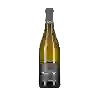
Domaine le RenardVaucluse Principauté d'Orange Blanc
This wine generally goes well with beef and spicy food.
Food and wine pairings with Vaucluse Principauté d'Orange Blanc
Pairings that work perfectly with Vaucluse Principauté d'Orange Blanc
Original food and wine pairings with Vaucluse Principauté d'Orange Blanc
The Vaucluse Principauté d'Orange Blanc of Domaine le Renard matches generally quite well with dishes of beef or spicy food such as recipes of beef bourguignon in the oven of nanou or tunisian tagine.
Details and technical informations about Domaine le Renard's Vaucluse Principauté d'Orange Blanc.
Discover the grape variety: Grenache
Grenache noir is a grape variety that originated in Spain. It produces a variety of grape specially used for the elaboration of wine. It is rare to find this grape to eat on our tables. This variety of grape is characterized by medium to large bunches, and grapes of medium size. Grenache noir can be found in many vineyards: South West, Cognac, Bordeaux, Provence & Corsica, Languedoc & Roussillon, Rhone Valley, Loire Valley, Savoie & Bugey, Beaujolais.
Informations about the Domaine le Renard
The Domaine le Renard is one of of the world's greatest estates. It offers 9 wines for sale in the of Vaucluse to come and discover on site or to buy online.
The wine region of Vaucluse
The wine region of Vaucluse is located in the region of Méditerranée of Vin de Pays of France. Wineries and vineyards like the Domaine Chêne Bleu or the Domaine Chêne Bleu produce mainly wines red, white and pink. The most planted grape varieties in the region of Vaucluse are Viognier, Merlot and Cabernet-Sauvignon, they are then used in wines in blends or as a single variety. On the nose of Vaucluse often reveals types of flavors of earthy, blueberry or dried herbs and sometimes also flavors of savory, anise or cinnamon.
The wine region of Méditerranée
Méditérranée is a PGI title that covers wines produced in a large area of the South-eastern coast of France, roughly corresponding to the wine region of Provence but also including Part of the Rhône Valley. The PGI shares its territory with multiple AOC appellations as varied as Châteauneuf-du-Pape, Bandol and Côtes de Provence. The PGI Méditérranée catchment area extends over 10 departments (including the two on the island of Corsica), as well as smaller parts of the Isère, Loire and Rhône departments. Viticulture is essential to the culture and economy of this part of France.
The word of the wine: Drawing (liqueur de)
In champagne and sparkling wines of traditional method, addition to the wine, at the time of bottling (tirage) of sugars and yeasts dissolved in wine. These components will provoke the second fermentation in the bottle leading to the formation of carbon dioxide bubbles.














